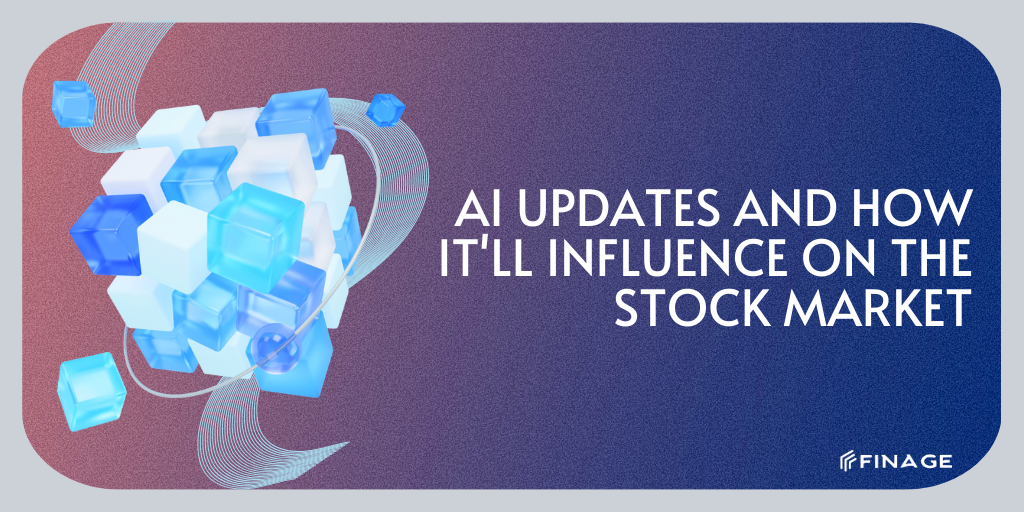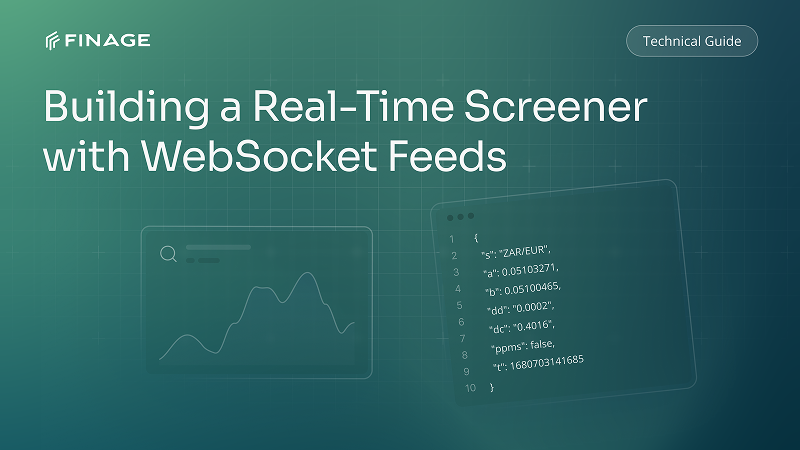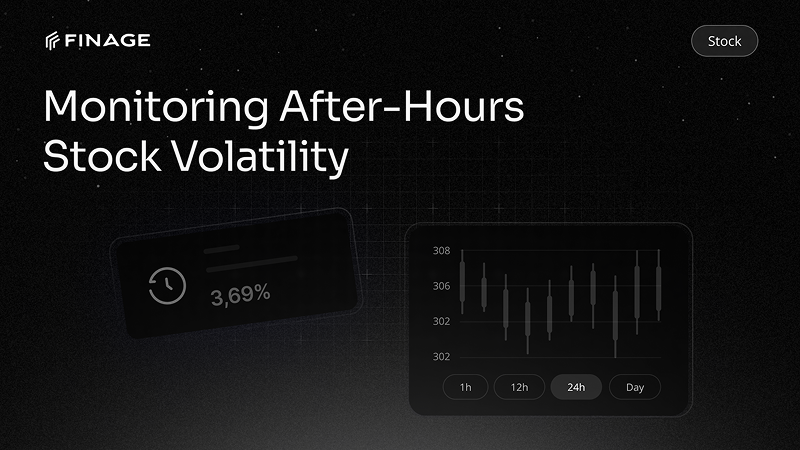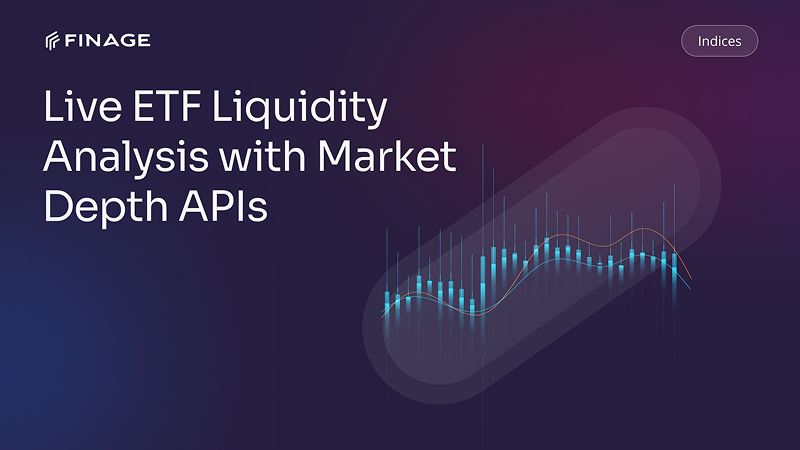AI Updates and How It'll Influence on the Stock Market
6 min read • June 8, 2024

Introduction
The modern stock market, with all its digital elements, has been a thing for decades, which means that innovation will always be prevalent. So, it should come as no surprise that being the hot technology right now, AI is seeing great popularity in the trading niche. The tech is perfect for the complexities of this space and fills roles that are, otherwise, difficult for humans.
In this piece, let’s look at AI's roles in the stock market, why it's seen as such a huge leap, as well as its potential dangers. Having gone through that, let's just dive right in.
Contents:
- The idea of tech in the stock market
- Algorithmic trading with AI integration
- How the tech is used and AI updates
- Stock selecting
- Portfolio creation and optimization
- Newer AI improvements
- NLP
- Financial models
- What the growing use of the tech could mean
- Final thoughts
The idea of tech in the stock market
Before getting into the nitty gritty, it should be noted that artificial intelligence in the stock market isn't exactly a new concept, at least. This is because the main goal of incorporating AI into a trader's toolbox is to make the process of gathering data, processing it, and finally executing a trade, faster.
This automaton of trade was already seen in the form of algorithmic trading, which used pre-programmed instructions to execute trades. This style of trading had been evolving, really since the early 1970s with an American stock exchange being a sort of pioneer. That said, algorithmic trading still needs the input of human beings to function, and that's where AI comes in.
Algorithmic trading with AI integration
AI, which refers to computer systems that can think, learn, and reason as humans do, basically takes the human element out of algorithmic trading. When trained AI is incorporated into algorithmic trading, the automation becomes extensive. As such, a host of things can be accomplished, and these include:
- Data gathering and processing from various sources quickly is arguably the greatest strength of AI
- The predictive capabilities, in which predictions are formed after analysis of historical data so that patterns can be taken advantage of
- Decision-making, which when working with the investor's goals, includes everything from holding, selling, and buying
- Execution, in which the AI models, through brokerage platforms, can be automatically executed
- Heightened risk management, in which AI can tirelessly provide unbiased, optimal analysis of historical data in search of anomalies
How the tech is used and AI updates
The abilities possessed by AI allow it to perform a host of duties that are quite useful in this space. Two specific things of note include the following:
Stock selecting
The data processing abilities of AI allow it to quickly go through the information and deliver accurate analysis. When the quick processing of data is completed, you can decide on what stock offers what you're looking for.
This may present itself in several ways, such as the use of ChatGPT to seek out the right and relevant information quickly. Another way is stock screeners which narrow down the search for the right stock by entering more information, thus efficiently performing such a search. Additionally, improvements in ChatGPT bring:
- Improved market evaluation and insights: with increased NLP comprehension and a larger knowledge base, the revised ChatGPT can give a more precise analysis of market movements, financial news, and economic data.
- Real-time data interpretation: the speedier reaction times indicate that the AI can analyze and interpret real-time data more efficiently now.
- Improved sentiment analysis: the increased NLP capabilities enable the AI to do more nuanced sentiment analysis.
Portfolio creation and optimization
With this technology, portfolios can be created in an automated way through the use of AI tools like robo-advisors. These guide you through what you're looking for, by looking at risk tolerance and time horizons among a host of other things to provide the right portfolio, and automatically create it.
In addition to this, portfolios can automatically be rebalanced if they stray too far away from what is intended. This shows that AI is a great tool for risk management.
Newer AI improvements
The updates include improved machine learning algorithms that have considerably increased predicted accuracy. Techniques such as reinforcement learning and deep learning are becoming increasingly effective, capable of analyzing massive volumes of data and identifying previously invisible patterns and trends.
NLP
For example, OpenAI's GPT and other advances in Natural Language Processing (NLP) have transformed computer understanding and processing of human language. These enhancements enable more accurate sentiment analysis and impact trading, news stories, social media, and financial data, giving traders real-time insights into the market mood in 2024.
Financial models
Financial companies are using AI-driven models to analyze risks, manage portfolios, and detect fraud. These models rely on AI's capacity to evaluate complicated data sets and give more precise and timely insights than conventional methods.
What the growing use of the tech could mean
If you look at the billions invested in AI in the finance space, it's fair to say that the benefits regarding speedy data processing, and overall automation makes it a great asset. In a world that already sees tons of platforms with AI capabilities giving users an edge, more of the same will follow.
This means that the use of AI will become the standard, as anyone looking to stand a chance will need to use it at some point, which may lead to a lot of things in the future, like:
- The possibility of a tireless 24-hour market
- An increased amount of volume in the market, and thus liquidity
The more it is used, however, the greater the challenges such as susceptibility to market manipulation become. As such, it's only natural for increased regulations regarding AI's use to create a fair environment.
Final thoughts
In reality, complete AI trading is a work that's currently in progress, as the technology isn't quite there yet. Regardless, at the very least, we can speculate, and make educated guesses concerning what a world that's using it would look like. The tireless nature of AI would mean that data gathering and processing abilities get heightened, allowing for more automation than ever before.
With more automation of this kind, and the computing power that far exceeds our abilities, a non-stop stock market could be the result, along with increased liquidity. The evolution will require regulations to ensure integrity, as threats will exist. In any case, AI in this niche is an exciting thought: the future of stock market analysis with the enhanced free version of even ChatGPT, offers us advanced insights and real-time data interpretation. And with additional proper Finage Widgets and tools, you can transform your investment approach!
You can get your Real-Time and Historical Stocks Data with a Stock Data API key.
Build with us today!
Claim Your Free API Key Today
Access stock, forex and crypto market data with a free API key—no credit card required.

Stay Informed, Stay Ahead
Finage Blog: Data-Driven Insights & Ideas
Discover company news, announcements, updates, guides and more


